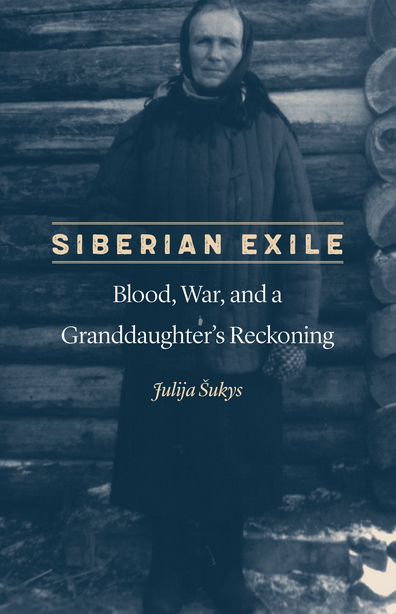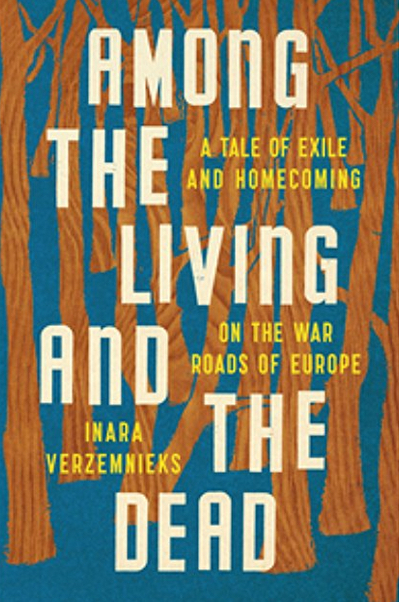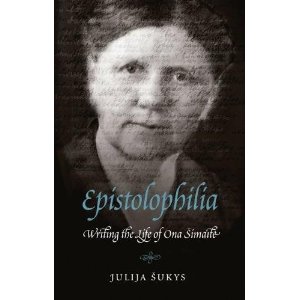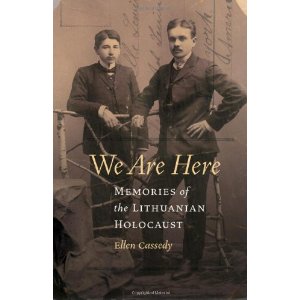Siberian Exile – Blood, War, and Granddaughter’s Reckoning
Julija Sukys –
University of Nebraska Press

Toronto-born Julija Sukys is an assistant professor of creative nonfiction at the University of Missouri. Her excellent biography of Ona Simaite, Epistolophilia, was discussed in an earlier post. Here she is out rather quickly with another affecting book of nonfiction. This one has to do with her grandmother’s years in the gulag as well as her grandfather’s complicity in The Holocaust.
For much of her adult life, Sukys had wanted to write about her grandmother Ona, who was deported in the first wave of deportations in Soviet Lithuania in 1941. Ona was taken by chance, in place of her husband, who happened not be home at the time, and luckily enough for her, none of her three children were there either.
Husband Anthony was in hiding at the time, and once the Soviets returned in 1944, he fled with the children to the UK and eventually to Canada. Poor Ona spent twenty years in the gulag and another five years in Lithuania while trying to get permission to rejoin her family of adult children.
Not surprisingly, after Ona did manage to make it to Canada, there were difficulties for her and her husband and children because they had been apart so long and their life experiences had been so different.
The shock that befell Sukys lay in the story of her grandfather, a narrative which she had been unaware of and was not intending to tell. Sukys was profoundly traumatized by her grandfather’s guilt, so much so that she seems to take on responsibility for his crimes in the belief that every crime must be paid for in some fashion, even if it is not by the person who committed it.
The story of Ona and her quarter century of struggle were supposed to be the main part of Sukys’s book, and they are described with detail and intelligence here, but their impact on Sukys the author is lesser, although there are some dramatic moments in Ona’s life and a remarkable coincidence of discovery in a Kent State archive that helped to illuminate her story.
Sukys’s book is thus very much about the author as well as about her grandmother and grandfather. She is astonished and appalled as she looks at another version of Joseph Conrad’s Heart of Darkness and finds it much closer to home than she imagined.
AMONG THE LIVING AND THE DEAD
A Tale of Exile and Homecoming on the War Roads of Europe
By Inara Verzemnieks

A graduate of the nonfiction writing program at Iowa, and Assistant Professor at the University of Iowa, Verzemnieks’s memoir also addresses her grandparents, Latvians who raised her in America when her mother and father were unable to do so.
Hers is very much an immersive biography of her grandparents, and indeed a biography of Latvia in the twentieth century.
After the deaths of the grandparents, Verzemnieks returns repeatedly to Latvia to live and work in the home of her maternal great aunt, and during these stays she takes on histories both big and small.
She writes about her grandfather, who was an economist until drafted into the Wermacht where he lost an eye fighting the Soviets. How guilty is that man for the crimes of the Holocaust? She considers her great aunt, who suffered terribly as a deportee in Siberia, working twice as hard as anyone else because she had to support two family members there who were incapable of working at all. She witnesses life in the countryside of Latvia amid the ruin of what the twentieth century wrought on that place
Verzemnieks’s prose is frequently philosophical and lyrical and is remarkable for its ability to encompass so much of the story of Latvia, and by extension, although she never makes that claim, of Lithuania and Estonia as well.
Like Sukys, Verzemnieks is very much in the centre of this story, even more so than Sukys by virtue of the time spent on the ground there. Her sensibility is slightly melancholy and wistful, and entirely appropriate for the places and the lives she is describing.

